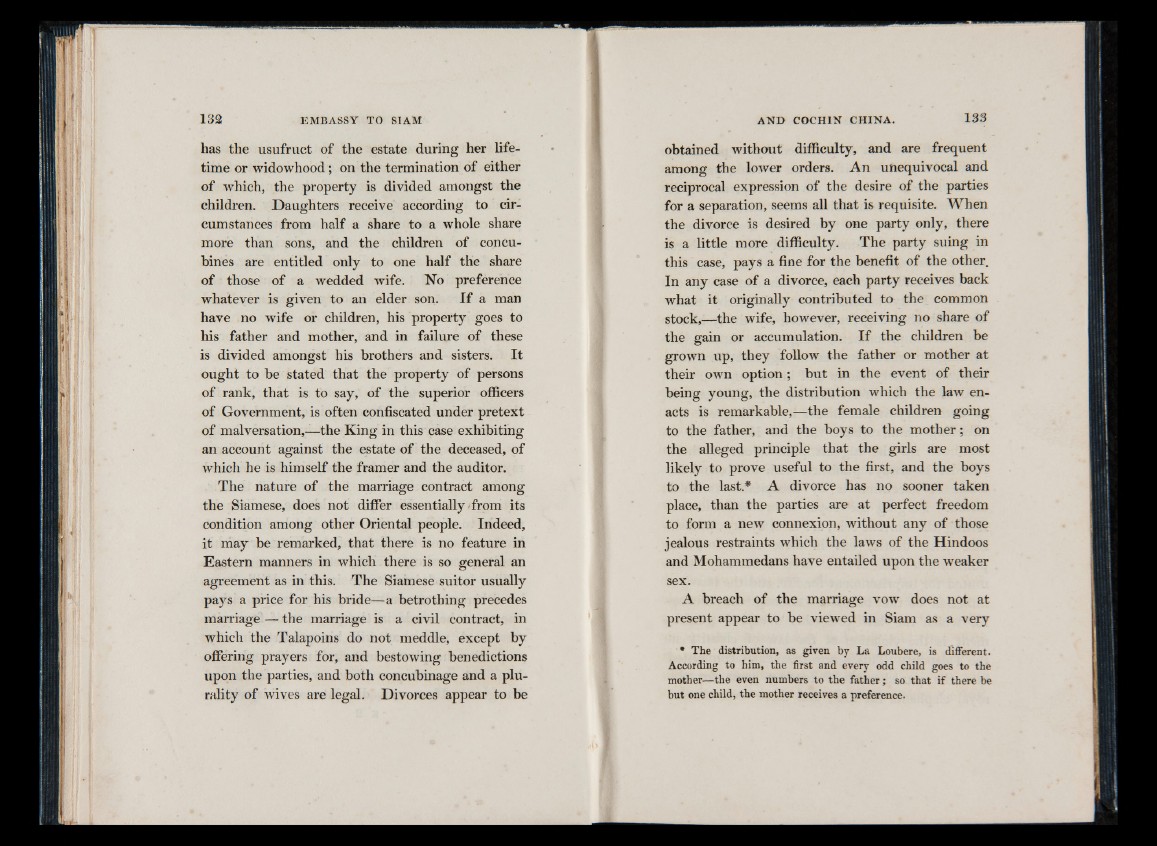
has the usufruct of the estate during her lifetime
or widowhood; on the termination of either
of which, the property is divided amongst the
children. Daughters receive according to circumstances
from half a share to a whole share
more than sons, and the children of concubines
are entitled only to one half the share
of those of a wedded wife. No preference
whatever is given to an elder son. I f a man
have no wife or children, his property goes to
his father and mother, and in failure of these
is divided amongst his brothers and sisters. I t
ought to be stated that the property of persons
of rank, that is to say, of the superior officers
of Government, is often confiscated under pretext
of malversation,—the King in this case exhibiting
an account against the estate of the deceased, of
which he is himself the framer and the auditor.
The nature of the marriage contract among
the Siamese, does not differ essentially from its
condition among other Oriental people. Indeed,
it may be remarked, that there is no feature in
Eastern manners in which there is so general an
agreement as in this. The Siamese suitor usually
pays a price for his bride—a betrothing precedes
marriage — the marriage is a civil contract, in
which the Talapoins do not meddle, except by
offering prayers for, and bestowing benedictions
upon the parties, and both concubinage and a plurality
of wives are legal. Divorces appear to be
obtained without difficulty, and are frequent
among the lower orders. An unequivocal and
reciprocal expression of the desire of the parties
for a separation, seems all that is requisite. When
the divorce is desired by one party only, there
is a little more difficulty. The party suing in
this case, pays a fine for the benefit of the other.
In any case of a divorce, each party receives back
what it originally contributed to the common
stock,—the wife, however, receiving no share of
the gain or accumulation. I f the children be
grown up, they follow the father or mother at
their own option; but in the event of their
being young, the distribution which the law enacts
is remarkable,—the female children going
to the father, and the boys to the mother; on
the alleged principle that the girls are most
likely to prove useful to the first, and the boys
to the last.* A divorce has no sooner taken
place, than the parties are at perfect freedom
to form a new connexion, without any of those
jealous restraints which the laws of the Hindoos
and Mohammedans have entailed upon the weaker
sex.A
breach of the marriage vow does not at
present appear to be viewed in Siam as a very
• The distribution, as given by La Loubere, is different.
According to him, the first and every odd child goes to the
mother—the even numbers to the father; so that if there be
but one child, the mother receives a preference.